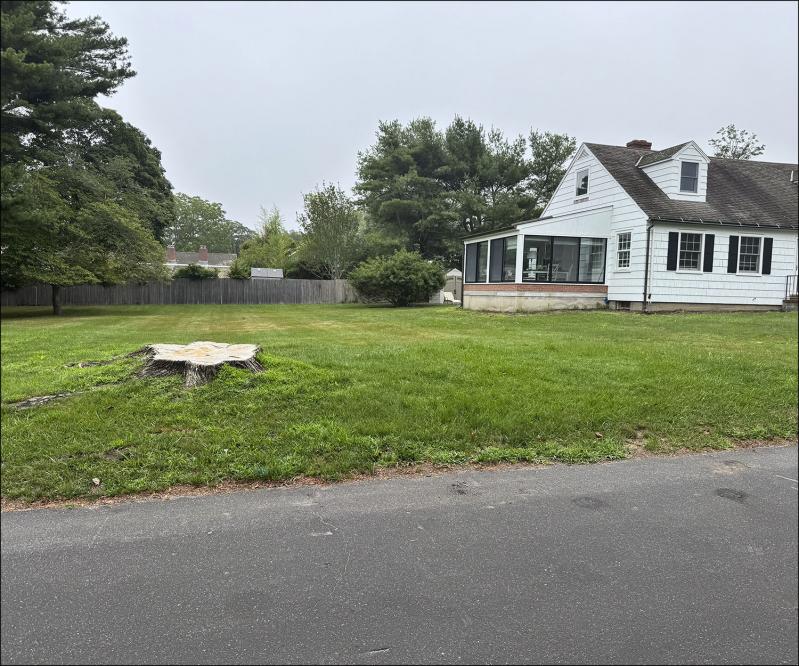The case of Augusta Ramsay Folks, an 81-year-old property owner accused of cutting down two trees on Meadowlark Lane in Sag Harbor in June of last year — in violation of a tree-protection law that had been adopted by the village that February — was back in court on July 8, when a settlement proposed by Ms. Folks was rejected by the village and then withdrawn by her attorney.
Ms. Folks said last year that she had the trees removed after the Suffolk County Health Department informed her that their roots would interfere with a new septic system she planned to install on the property. One of the trees, estimated to have been about 150 years old and roughly 48 inches in diameter, had been on village property; the other, about 36 inches in diameter, was on her property. The village code prohibits the removal of trees with a diameter “at breast height” of 12 or more inches without a permit.
Justice Carl Irace began the proceeding by offering his condolences to Ms. Folks, whose husband and business partner, T. John Folks, died last month. She stood quietly beside her attorney, Alex Kriegsman, as Nicholas Coritsidis of the firm Tarbet & Lester, announced that the village was prepared to bring the case to trial, and that it had determined an offer proposed by the defendant to replant trees — one dogwood and three crape myrtles — to be “not sufficient.”
In response, Mr. Kriegsman said that his client was withdrawing the offer, and quickly moved for the case to be dismissed, calling it a violation of his client’s Sixth Amendment rights. He had previously made a motion for dismissal last October, after Bob Plumb, a member of the village board, allegedly stated during a meeting that he hoped the village could “make an example of” Ms. Folks.
Justice Irace interjected as Mr. Kriegsman then attempted to read the Sixth Amendment of the Constitution into the record. “You’ve misguided proceedings and the public before,” he said, “and I’m not going to let that happen again.” He characterized Mr. Kriegsman’s argument as “grandstanding” and “just saying things,” and said that he had been offered the opportunity to file a motion to provide a legal basis for his assertions, but had not yet done so.
Mr. Kriegsman replied that he had not filed a motion because his client had been engaged in settlement discussions with the village, and further stated that he “does not appreciate the court’s comments” because the parties had previously reached an agreement that the court rejected.
“I think this is a settlement discussion that should not be discussed publicly,” Justice Irace said, and Mr. Coritsidis concurred that the argument “sounds like something more suited to a written motion.”
The parties agreed that Mr. Kriegsman would file his motion to dismiss by Aug. 8, and that the prosecutor would have until Sept. 8 to respond. A final response from the defense will be due on Sept. 23. “Once we have a decision,” Justice Irace said in closing, “we will notify you both.”
A few minutes later, outside the building, Mr. Kriegsman offered more context to the argument he had started to make in court, stating that, though the Sixth Amendment provides his client the right to a trial by jury, the Supreme Court has carved out an exception for “petty offenses” that carry a maximum fine of $5,000.
Mr. Kriegsman continued that Justice Irace had previously stated that he could order Ms. Folks to replant an elm tree — like the one that had been removed from village property — which by Mr. Kriegsman’s estimation would cost around $100,000.
“That’s a violation of her Sixth Amendment rights, and it’s outside the jurisdictional limit of this court,” he said. “This isn’t going to trial, because if the judge isn’t going to follow the law, we’re going to appeal. Because my client’s Sixth Amendment rights will be respected, and she will not be standing for trial in a kangaroo courtroom.”




